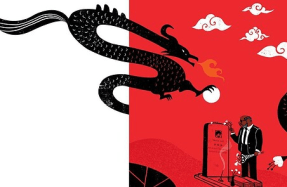
In America, pro-life and pro-choice voices are pitted against each other with some on both sides denying the complexity of the issue.
JENNIFER KEISHIN ARMSTRONG reports on how Buddhist teachings could transform the abortion debate—and benefit women.

KIRA DANE HAD JUST GRADUATED
from NYU film school in 2017 when she got pregnant. She knew she wanted an abortion and it was a relatively uncomplicated process. At age twenty-three, she wasn’t ready for a child and wasn’t conflicted. She was in New York City, where access to the procedure was easy. She was still on her parents’ health insurance plan, which covered it. And she had a supportive mother who accompanied her to her appointment.
Yet the experience was still terrifying, says Dane, and a few months afterward, she broke down crying about it. “I had pushed away a lot of emotions,” she says. “I had pushed away the acknowledgement that abortion wasn’t just a surgical procedure.”
Dane had been raised atheist, but her mother had grown up Buddhist in Japan, so Dane had dabbled in Buddhist ideas. She had heard in passing about a ritual called mizuko kuyo, in which parents mourn children they’ve lost—whether through abortion, miscarriage, stillbirth, or sudden infant death. Dane found a book on the subject, William LaFleur’s Liquid Life, and the ritual struck her as amazing and validating.
means “water baby memorial service,” and it draws on the idea that life has no beginning or end. Life is a fluid resource, which takes human form and then returns to the source with ease. The ceremony allows grieving






